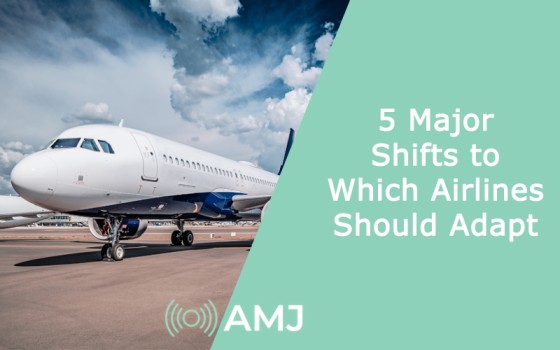The aviation sector operates in a dynamic and ever-evolving environment. In light of the ongoing global transformations, airlines are compelled to modify their strategies to maintain relevance and competitiveness continually. Here are five major shifts that airlines should adapt to:
Contents
Health and Safety Protocols
Health and safety are two of the top priorities for passengers. Airlines need to implement hygiene measures, invest in advanced air filtration systems, and adapt their cabin layouts to accommodate social distancing. Qantas flight prioritizes safety with contactless check-in, enhanced cleaning, and measures like physical distancing, providing sanitizing wipes, and encouraging hygiene protocols for a secure travel experience. Flexibility in ticket policies is also crucial to reassure travelers and accommodate any unexpected changes in plans.
Shifts in Airline Fleets and Networks
Airlines are experiencing capacity challenges as a result of economic uncertainties, airline failures, and production issues with major aircraft manufacturers. This has resulted in a trend towards lower-volume, point-to-point services, often serving secondary airports. Airlines must shift to expanding their network using newer fleet types in order to adapt. To capitalize on opportunities and manage risks, scenario planning based on fleet and market dynamics is crucial. The evolving landscape suggests a move towards increased network breadth and a strategic evaluation of routes to remain competitive in the changing aviation industry.
Environmental Sustainability
Airlines should shift towards eco-sustainability to decrease their carbon footprint. The shift towards sustainable aviation fuels, more fuel-efficient aircraft, and carbon offset programs is crucial. Airlines that proactively embrace eco-friendly practices not only contribute to a greener planet but also appeal to environmentally conscious travelers, potentially gaining a competitive edge. For instance, AirNZ is committed to finding a more sustainable way to connect with the world and reach the goal of net zero carbon emissions.
Self-Driving Vehicles
Airlines must embrace the growing trend of autonomous vehicles at airports to improve efficiency. Implementing self-driving technologies in aircraft taxiing, snow removal, and luggage handling may significantly enhance operations. This not only lowers human error but also increases overall speed and accuracy, resulting in a more streamlined and trustworthy air travel experience. Adapting to this technological transformation has the potential to revolutionize ground operations and raise the industry’s standard for safety and efficiency.
Personalized Customer Experience
Airlines should leverage data analytics to understand individual preferences and tailor services accordingly. From personalized in-flight entertainment recommendations to targeted promotions based on travel history, providing a customized experience enhances customer satisfaction and loyalty. Embracing this shift ensures that airlines not only meet but exceed the expectations of their diverse passenger base.
The dynamic landscape of the airline industry demands swift adaptation to key shifts. Prioritizing health and safety, embracing digital transformation, committing to sustainability, tapping into emerging markets, and offering personalized customer experiences are pivotal. Airlines that proactively navigate these changes stand poised to thrive in an ever-evolving aviation environment.












![Index of Money Heist [Season 1, 2, 3 & 4 – All Episodes, Cast and Plot] Index of Money Heist](https://www.asiamediajournal.com/wp-content/uploads/2021/05/Index-of-Money-Heist-3-100x70.jpg)